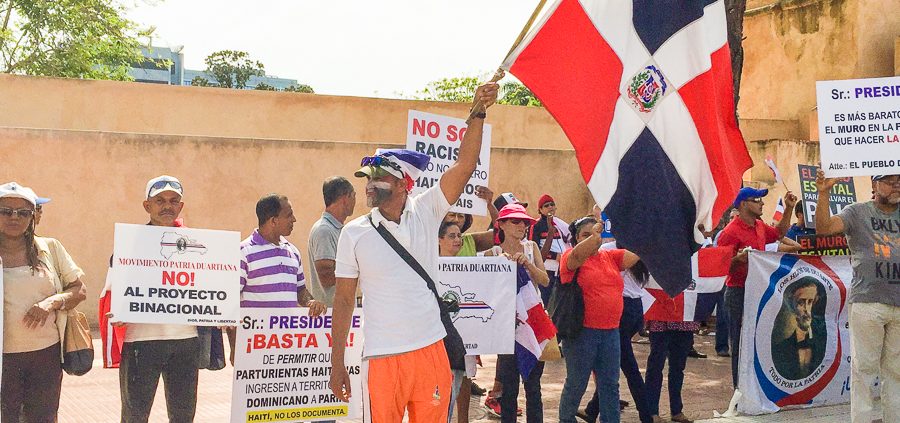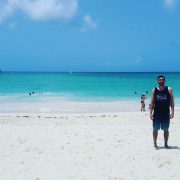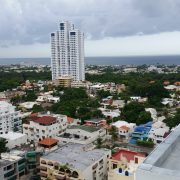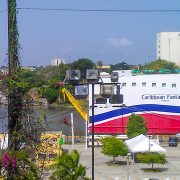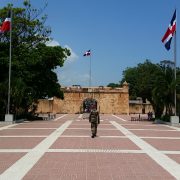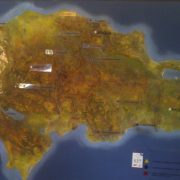The Dominican Republic: More than a Tourist Destination
By Elsie Silva MSW ’16
I have been back in the states for a couple of weeks now and my time in the Dominican Republic (DR) continues to be in the back of my mind with every passing day. All of my friends and family have asked me how my time went over there and I cannot seem to find a definitive answer to what should be a simple question. I could say good because there were aspects of my time in the DR that were pleasant. I met some really nice people and I visited beautiful spots around the island, especially the clear blue beaches that served as a relaxing and unwinding atmosphere after a long week. On the other hand, I could also say bad because the weeks were at times exceptionally long and the work that I was doing placed me in a world that I was not prepared for. I struggled dealing with the stories I heard and some of the things I saw but I knew that I had to keep going. In my mind, I continued to tell myself that everything happens for a reason. I told myself that with every person I met and with every new scenario I dealt with, I was learning from it. While at that time, I could not figure out what lesson I was intended to learn, I can now look back and begin to understand how my trip to the DR became one of the most significant learning experiences of my life.
When I think about the work I was doing, I can truly say that the participants opened my eyes to a world I knew almost nothing about. Sure I had heard and known about sex work but I never fully understood why people go into that type of work and what factors come into play when individuals decide that sex work will be their source of income. The more participants I interviewed, the more I realized how the United States and countries in Europe have exploited the DR for sex. Considering how the DR is a third world country, making ends meet is an ongoing struggle, especially when also raising a family; therefore, more and more individuals feel the only way to sustain themselves and their family is to give themselves over to the type of work that tourists have continuously taken advantage of. I can now look back and say that although I knew about sex work from reading articles and watching documentaries, hearing and seeing first hand the damage, not only physical but psychological, that sex work has on these participants has given me a deeper perspective on this issue and will help me in the future when working and trying to help clients who have been or are involved in this line of work.
When I think about my time in the DR outside of work, I can focus on the beautiful scenery mentioned earlier but I am also fixated on the devastating and unsettling events that took place. Only a couple of days before I left to the DR did I become aware of the relationship that the DR has with Haiti. The Plan Nacional de Regularizacion (National Regularization Plan) had just decided to proceed on the deportation of more than 20,000 Dominicans of Haitian decent. I discovered that deportation protocols were practically nonexistent, and people were being targeted on the basis of appearance, with little or no verification of their identity and nationality. Once I arrived to the DR, I noticed that the daily newspapers always had a new article talking about this issue but they all seemed to be supporting the mass deportations, constantly belittling those with Haitian descent by stating they were stealing Dominican jobs and taking advantage of the health care system due to the high number of pregnancies among Haitian women. When I began to ask those around me what their view was on the matter, most everyone agreed with what the newspapers were printing. I was shocked! How can so many Dominicans feel this way when most Dominicans have a Haitian ancestry? I even witnessed a protest occur on the streets of Santo Domingo where individuals held signs that read “Tenemos que frenar y revertir la invasion Haitiana (we need to stop and revert this Haitian invasion).” It was extremely devastating to see another country divided by race and to know that my own country, while not as extreme at this time, is going through a similar situation. While the U.S. might not get involved with the issues occurring in the DR, I hope that we will at least learn from them and not allow that to occur to what we call “the land of the free.”
As mentioned earlier, my trip to the DR was one of the most significant learning experiences of my life. I was able to visit a new country and immerse myself in its culture. I was able to work with a population that is constantly stigmatized and ostracized and at least gave some of them a chance to voice their story. I was able to learn about some of the political issues affecting this country and what the views are among its population. But what I felt to be the biggest lesson was learning more about myself. I was pushed to come out of my shell several times and my eyes were opened in ways I would have never imagined. One of the things I can tell people without any hesitance is that this trip has changed me in a number of ways. I am not the same person I was before I left to the DR, I now feel better prepared to take on the challenges and hurdles that lie ahead and I feel more confident that I can overcome them.

